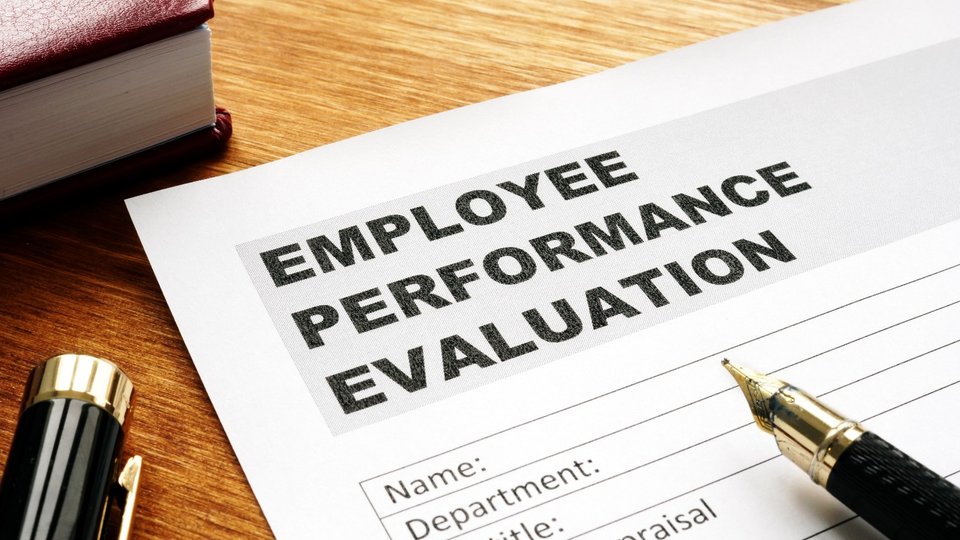Staffing
Why employee reviews still important to operations
As more Americans leave their jobs, are performance reviews still viable in the workplace?

December 17, 2021 by Mandy Wolf Detwiler — Editor, Networld Media Group
If you own a restaurant, you're probably most worried about keeping supplies rolling in and filling shifts. Employee reviews could be the farthest thing from your mind.
But given today's labor shortage employee attention is critical, for both the brand and the employee. Yet how do you know you're getting the most out of your employees and how do you stave off constructive criticism when an employee is just as likely to quit amidst the Great Resignation of 2021?
Encourage ownership
Alex Mastin, founder and CEO at Homegrounds.co, said a great approach to answer both those questions is to get the employee to raise the issues themselves.
"Instead of offering up what they are doing wrong, first check in to see if they notice where they might be struggling anyway — quite often they will already know, and having them bring it up in conversation can make for a much more productive and happy outcome as you both discuss what might help the employee in that area.
"Using this method also allows the employee to take some ownership over the problem, and now that you are there to support them with improving through suggestions, training or whatever might be applicable — bad work or a problem situation doesn't immediately have to mean an overwhelmingly negative review, and the employee can actually leave feeling empowered and ready to tackle the issue."
Be empathetic and accessible
In a time of scarce resources, managers can't assume "it is bad with it and worst without it," said global human resources expert Stella Monteiro. "You can't be afraid to give feedback but, you have to learn how to share an appropriate message that will engage and motivate your employee."
Empathy is key, she added. "Think about why your employee is working for you: for a paycheck, of course. But, is there an ambition to grow? What else is there? If you believe that your professional is willing to improve, you have an opportunity to turn this situation into an engagement session.
"Now think about the circumstance that requires improvement. Review the episode in your mind and ask yourself if you have any unconscious bias influencing your perception. If you have it, try to remove it to review it from a different angle. Next, check if expectations of performance were clear before. If they weren't, now it is the time to clarify it and, if they were, reinforce it.
"Finally, prepare your speech with facts, not assumptions or impressions. You want to be as clear as possible about the issue and use it as a learning session. Show that learning is a process, and you are there to guide, not punish. This process will enhance communication and increase engagement, which is the best retention tool you can have."
Human resource departments can make themselves more accessible by establishing structured check-in hours for each work day. These hours might be from Monday to Friday between the hours of 2 p.m. to 4 p.m., for example. "This encourages employees to check in if they need support without feeling as though they're being disruptive," said Mike Grossman, CEO of GoodHire, an employee background checking company.
Use the 'sandwich method'
Combining criticism with praise can also soften the blow and open the employee up to change.
"The 'sandwich method' is a great way to do this," said Dehan Matthee, HR manager at Epos Now, a cloud-based software provider. "Think of your criticism as the filling in a sandwich and your praise as the bread. Begin with a compliment, then include your constructive criticism, and finally finish with a compliment. This essentially wraps your criticism in recognition and will be a lot easier for your employees to take," she said, adding, "An example could be, 'Your customer service skills are fantastic, and you have a great, friendly way with our customers. However, there have been some times when you could have noticed the customers a little earlier, making their wait time much shorter. Keeping a sharper eye on when customers arrive at the restaurant would help resolve this. Nevertheless, the customers respond well to you, which is great."
When it comes to giving employee reviews, managers focus too much on the negative.
"When delivering feedback, the most important consideration is motivating and inspiring the employee to do better — not berating them into feeling worse," Grossman said. "There's a trick when it comes to conducting a proper employee review, and it's called the "feedback sandwich." It starts by praising the employee for something that they're doing well. Then, talk about something that they could improve. Finally, finish with something else that the employee does well.
This 'two positives and a negative' structure leaves employees feeling good about their performance, yet still gives them something actionable to work with and improve upon, said Grossman.
Offering online feedback
Chris Campbell, founder of Review Trackers, said attracting and retaining talent is crucial in today's job marketing.
"That's why it's so important for your leadership and HR teams to embrace — instead of fear — online reviews and public employee feedback posted online. 83% of candidates are likely to check a company's employee reviews and ratings when deciding on where to apply for a job.
"84% of job seekers say that the reputation of a company as an employer is very important when making a decision on where to apply for a job."
Companies that respond to employee reviews provide job candidates with an extra measure of reassurance, particularly when they see that you, as an employer, are active on employee review sites.
By responding to employee reviews, you can support your employer brand monitoring strategy, drive engagement with employees, and support efforts to improve the overall employee experience. Here's how to do it properly.
Finally, know the outcome you seek. Roberta Matuson, author of "Can We Talk?," a book about managing difficult conversations at work, said you should have a clear path for offering criticism during formal employee reviews.
"For example, you have to tell an employee they're no longer meeting your expectations," she said. "Is your goal here to provide them with feedback so they can improve? Or is your end goal to put this person on a performance improvement plan? Getting clear on your goals upfront will determine how best to proceed and will significantly improve your odds of having a successful conversation."
About Mandy Wolf Detwiler
Mandy Wolf Detwiler is the managing editor at Networld Media Group and the site editor for PizzaMarketplace.com and QSRweb.com. She has more than 20 years’ experience covering food, people and places.
An award-winning print journalist, Mandy brings more than 20 years’ experience to Networld Media Group. She has spent nearly two decades covering the pizza industry, from independent pizzerias to multi-unit chains and every size business in between. Mandy has been featured on the Food Network and has won numerous awards for her coverage of the restaurant industry. She has an insatiable appetite for learning, and can tell you where to find the best slices in the country after spending 15 years traveling and eating pizza for a living.
 ChatGPT
ChatGPT Grok
Grok Perplexity
Perplexity Claude
Claude








